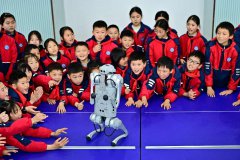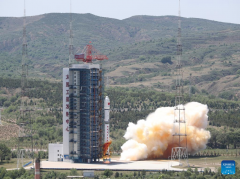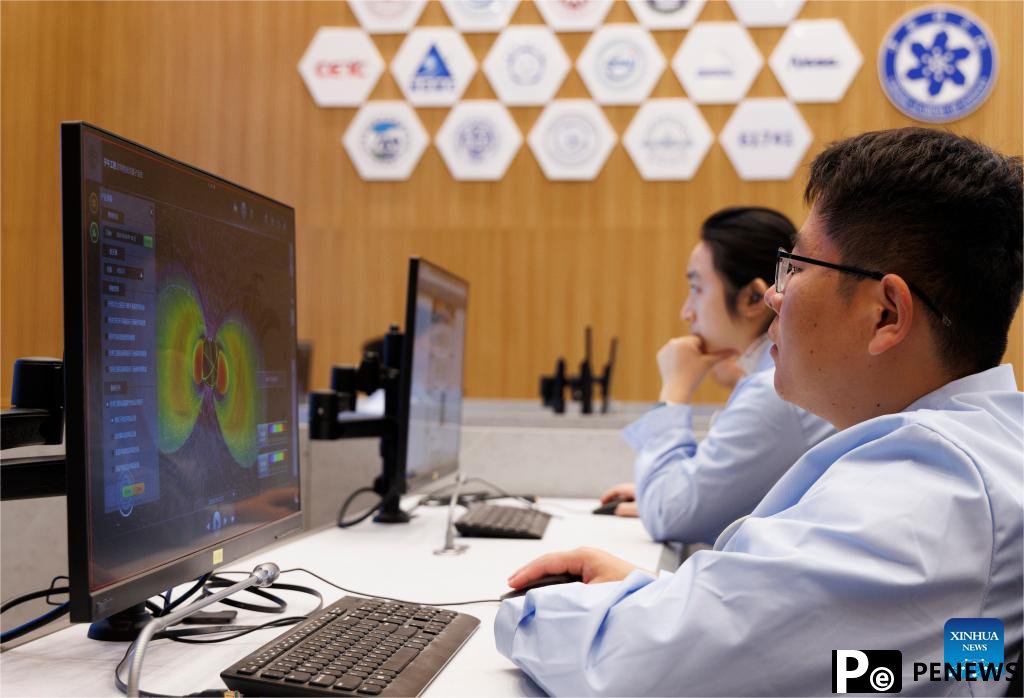Home>>
Humanities studies take back seat as AI surges aheadBy Zou Shuo (Chinadaily.com.cn) 09:04, March 28, 2025

(Lu Ping/China Daily)
Fudan University's decision to slash its humanities enrollments by up to half and expand its technology-focused programs has sparked a fierce academic debate about the value of humanities subjects in the era of booming artificial intelligence.
The strategic pivot by the Shanghai-based university mirrors moves by Peking and Tsinghua universities to boost undergraduate intakes in AI and related fields. This is despite Fudan being celebrated as a traditional stronghold of the humanities.
At this year's annual session of the National People's Congress in Beijing, Fudan University President Jin Li, who is also an NPC deputy, revealed plans to restructure the engineering departments into six innovation colleges specializing in integrated circuits, intelligent robotics, and advanced manufacturing.
Although new humanities programs will emerge, their overall share of admissions will be reduced from 30 to 40 percent to 20 percent, he said.
Public reaction to the announcement has been divided.
Supporters have applauded the tech-oriented shift, arguing that AI dominance leaves mediocre humanities graduates uncompetitive in the jobs market. Others mourn the potential erosion of Fudan's humanities legacy.
The debate encapsulates China's developmental crossroads: balancing immediate tech demands with preserving the humanities' "soul" of its elite education tradition.
Qiu Xin, Party Secretary of Fudan University, said at an earlier work conference that the university's humanities programs remain 'cornerstone' advantages, and their foundations won't be compromised. The reforms aim to elevate educational quality while meeting national priorities, he said.
Focusing on demand
The trend extends beyond Fudan, with elite higher education institutions like Tsinghua University and Shanghai Jiao Tong University recently announcing plans to expand student enrollments this year, heavily favoring strategic science, technology, engineering, and math (STEM) fields, including AI, robotics, and digital economy programs.
Zheng Shanjie, head of the National Development and Reform Commission, said at a recent news conference that there are plans to increase the total enrollment at elite universities by 20,000 this year.
Tsinghua was the first university to announce its enrollment expansion, which will see it increase its undergraduate enrollment by 150 this year. The university is actively pushing to cultivate AI talent, and expansion is a major step toward realizing the goal, the university said.
Peking University announced that it will also enroll 150 more undergraduate students this year, with a focus on information technology, engineering, and medicine.
In the past five years, the two universities have enrolled around 3,500 undergraduate students annually, making the 150 jump a notable increase.
The moves follow the country's overall academic restructuring initiative. A plan issued by the Ministry of Education and four other departments in 2023 said the country will optimize 20 percent of its university majors by 2025, with one of the aims to meet industry needs.
The recent Government Work Report stressed the need to improve the structure of disciplines at elite universities. It also emphasized strengthening China's innovation ecosystem and efficiency through science and education.
Experts said compared with previous expansions of university enrollments, the latest round is more targeted and reflects China's intensifying tech rivalry with the US, particularly in semiconductors and AI, where domestic players like AI startup DeepSeek are driving innovation.
Wang Feng, director of the Institute of Education Mechanism and Institutional Reform at the China National Academy of Educational Sciences, said the latest enrollment expansion plan is more structured and focused on basic disciplines, cross-disciplines, and emerging sectors.
Ding Gang, a senior researcher at the Chongyang Institute for Financial Studies, Renmin University of China, said the 140-member research and development team at DeepSeek had an average age of 28 and almost all of them attended domestic universities. This reality upended a long-held belief in the tech sector that scientists should go to the United States for higher education.
More than 80 percent of the R&D team graduated from Tsinghua and Peking universities and less than five percent are from overseas universities, with core members still pursuing doctoral studies, he said, adding that the young team is indicative of the restructuring of the global innovation map.
The innovation and breakthroughs achieved by the team are testimony to the changes made by domestic universities to move away from rote learning to education that emphasizes critical thinking and cross-disciplinary experimentation, he said in a WeChat post.










